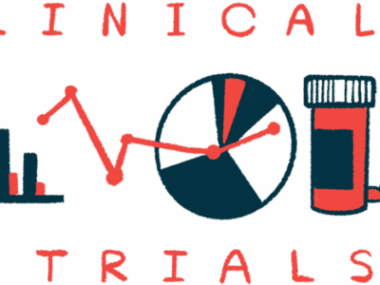AusperBio raises $50M to advance AHB-137 for chronic hepatitis B
Funding will cover trials outside China, company says
Written by |

AusperBio raised $50 million to advance the development of chronic hepatitis B treatment AHB-137. The company said the funding will help it launch Phase 2 clinical trials outside mainland China, expand its manufacturing partnerships, and invest in its growing pipeline.
“This new funding gives us the momentum to move AHB-137 into the next phase of global development,” Guofeng Cheng, PhD, AusperBio’s co-founder and CEO, said in a company press release. The company is focused on its “mission to deliver a functional cure for chronic hepatitis B and bring life-changing therapies to patients worldwide,” Cheng said.
Hepatitis B is caused by the hepatitis B virus (HBV). In some cases, the body clears the virus on its own. But if the infection persists for more than six months, it is said to have become chronic. Over time, chronic HBV can lead to serious complications, such as cirrhosis (permanent scarring of the liver) or liver cancer.
The main treatment for chronic hepatitis B involves antiviral medications, which help prevent the virus from replicating (multiplying), keeping the infection under control. These treatments don’t usually lead to a functional cure, and most people need to stay on treatment long term to keep the virus contained.
AHB-137 is an antisense oligonucleotide, or a small piece of genetic material that binds to a specific messenger RNA, an intermediate molecule derived from DNA that guides protein production. Upon binding to its target messenger RNA, AHB-137 triggers its breakdown and reduces the production of viral proteins needed for HBV to survive. This is expected to help achieve a functional cure.
Trial data encouraging
A Phase 2b trial (NCT06550128) of AHB-137 is underway in China, involving 64 adults with chronic hepatitis B who were already on stable antiviral medications. All patients tested negative for HBeAg, an indicator of active viral replication, but were positive for HBsAg, a protein that helps the virus infect liver cells.
Participants were randomly assigned to receive weekly, under-the-skin injections of either AHB-137 (300 mg) for 24 weeks — with a higher loading dose in the first two weeks — or a placebo for eight weeks, followed by AHB-137 for the remaining 16 weeks.
The main goal was to see how many patients had HBV DNA and HBsAg drop to very low or undetectable levels by the end of the treatment, regardless of whether participants developed antibodies against HBsAg (known as seroconversion), which signals that the immune system is taking control and could help prevent reinfection.
Most patients met the main goal: 75% of those treated with AHB-137 for 24 weeks and 66% of those who were started on a placebo and then switched to AHB-137. Among those attaining that goal, more than 80% had no detectable HBsAg within three months.
Seroconversion occurred in more than half (54%) of those treated with AHB-137 for 24 weeks and one-third (33%) of those who were started on a placebo and then switched to AHB-137. AHB-137 was well tolerated, with a favorable safety profile in both groups.
These results were in line with earlier findings from the Phase 2a portion of a Phase 1/2a clinical trial (NCT06115993), also ongoing in China, in which AHB-137 was found to be well tolerated, with signs that it may be effective.
While dosing is complete in both Phase 2 studies, patients will continue to be followed for up to 18 months to track long-term safety and whether the antiviral effects last.
“We are strongly encouraged by the recent progress of AHB-137, particularly the positive Phase IIb data,” said Chris Yang, PhD, AusperBio’s co-founder and chief scientific officer. “With strong investor support, the AusperBio team is fully motivated to continue our clinical strategies and efforts to bring new treatment options to people living with [chronic hepatitis B].”
This Series B-plus funding builds on a Series B funding round of $74 million completed in December 2024.



